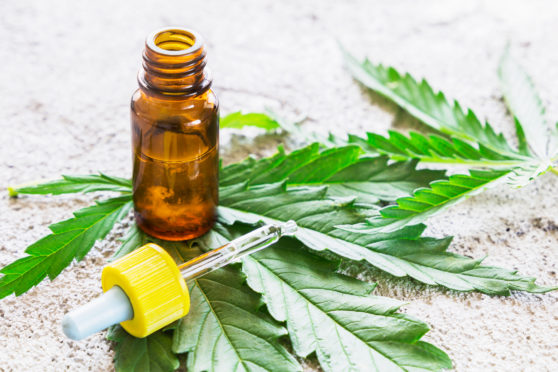
Medicinal cannabis should be welcomed by UK doctors, like penicillin was decades ago, to unlock its potential, an expert has suggested.
Professor David Nutt, from Imperial College London, warned many patients are suffering seizures as they struggle to get the treatment, despite a change in law last year.
Writing in medical journal the BMJ, the former government drugs adviser said access to medicinal cannabis needs to be improved, with many doctors “fearful” of prescribing it.
“Still only a tiny number of children with severe juvenile epilepsies are being treated, and many others continue to have multiple seizures because neurologists will not prescribe,” he wrote.
Prof Nutt, an expert in neuropsychopharmacology, suggested doctors could learn from the example of penicillin, which led to the development of antibiotics and a revolution in healthcare.
“About 70 years ago another natural medicine came into the medical arena,” he said.
“This was welcomed enthusiastically by UK doctors even though there had been no placebo-controlled trials of its efficacy because it was seen to fulfil a major clinical need.
“That drug was penicillin. If today’s medical profession could embrace cannabis in the same way as it did penicillin then the true value of this plant medicine should rapidly be realised.”
The law was changed in November last year to allow UK specialists or GPs acting under their instructions to prescribe medicinal cannabis, following several high-profile cases.
However Prof Nutt said the roll out “has been much slower than patients and parents had hoped”.
Reasons for that, he said, include fears over adverse side-effects such as psychosis, “ignorance” over the value of cannabis medicines, and difficulties getting supplies of products from abroad.
Prof Nutt suggested more research should be carried out on a small-scale to address some of these concerns.
The mother of Alfie Dingley, a campaigner who fought for the drug to ease her son’s seizures, said it is “heartbreaking” that other children cannot get hold of the products they need.
“I know the NHS is underfunded. But consider the needs for long-term care if a child deteriorates without effective treatment,” Hannah Deacon wrote in a separate BMJ article.
“And in families with a child with epilepsy, the social impact on the full time carer (usually the mother) is immense.
“Consider the mental health problems, the family breakdowns because of the strain of having a disabled child.
“The costs to society and to the NHS far exceed those of a product that may just give all these families a life worth living.”
Prof Nutt has been critical of the UK Government’s stance on cannabis in the past.
He was sacked from his role as chairman of the Advisory Committee on the Misuse of Drugs in 2009, after suggesting alcohol and tobacco are more harmful than LSD, ecstasy and cannabis.
Dr Adrian James, registrar of the Royal College of Psychiatrists, said: “It is important to distinguish between the medicinal and recreational uses of cannabis. We are reviewing the mental health effects of both types of use.
“There is insufficient evidence that treatments with cannabis are effective enough to promote prescribing other than in rare situations.
“There is, however, a potential for it to be a helpful treatment so we need more research into this.”
He added: “We hope that our review will produce a rounded picture of the biological, psychological and social effects of cannabis and will give policymakers the knowledge needed to put the health and wellbeing of our patients at the centre of their decisions.”

Enjoy the convenience of having The Sunday Post delivered as a digital ePaper straight to your smartphone, tablet or computer.
Subscribe for only £5.49 a month and enjoy all the benefits of the printed paper as a digital replica.
Subscribe